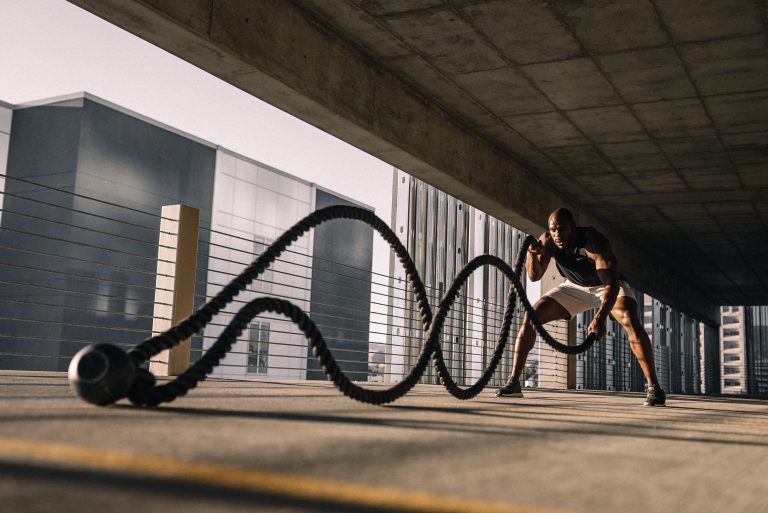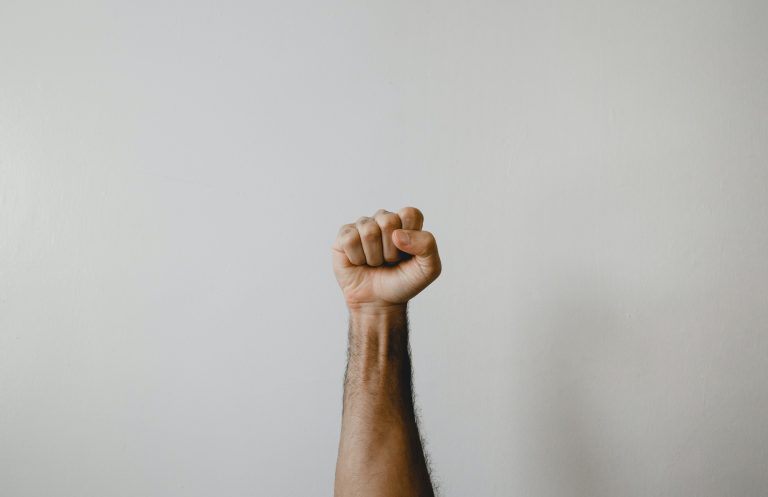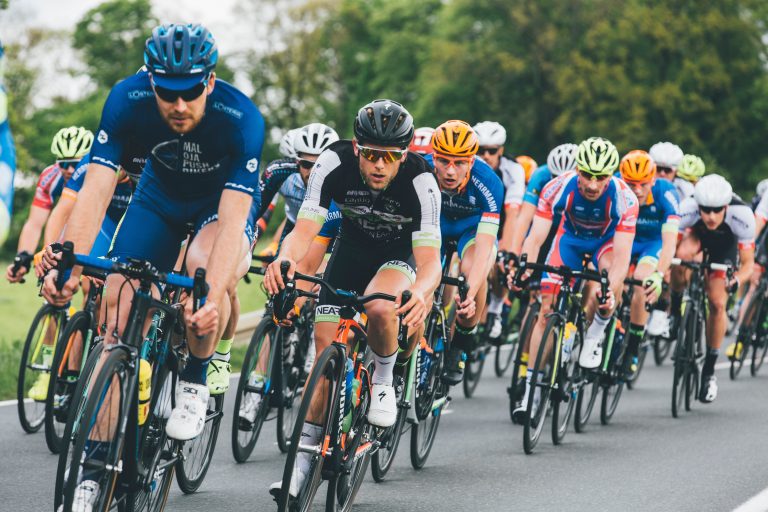How to Prepare for Karate Competitions
Competitions are becoming more and more common in the world of karate. From traditional martial arts tournaments to international championships, karateka (karate practitioners) from all walks of life are competing in sparring and kata (forms) events each year, pushing their skills to the limit in pursuit of the coveted championship title. But competing in karate events isn’t as simple as just showing up on the day, and it takes time, dedication and hard work to reach the level necessary in order to perform at your best. So, what are some of the key things to consider when preparing for a karate competition?
Conditioning
It should come as no surprise that physical conditioning is an important factor in any martial art, and karate is no exception. Regardless of whether you’re competing in kata or sparring events, being in peak physical condition is essential. Karateka competing in sparring must be able to move quickly and struck with power, while those competing in forms must be able to strike with accuracy and control. To reach this level of physical conditioning, karateka must focus on their overall strength, endurance and flexibility.
High Intensity Interval Training (HIIT) – is a great way to increase both your cardiovascular and anaerobic fitness levels and is a great way to gain the necessary fitness that you need for competition. Circuit training – focusing on the whole body, can help to improve speed, agility and overall strength. For those looking for more specific drills, there are many online resources that focus on developing karate-specific fitness, including JumpStretch – which focuses on plyometrics and agility drills. Also, strength-focused exercises like squats and push-ups can help to increase overall power and explosiveness.
Technique
Developing good technical skills are the cornerstone of any successful martial artist, and karate is no exception. For karateka competing in forms (kata), ensuring that the technique used is correct is critical. Poor technique not only affects the fluidity of the form as well as the score received during a competition, but also detracts from the overall aesthetic of the performance. Competitors must spend time regularly reviewing their kata, paying attention to details such as stance width, hand movements, timing and cutting techniques.
For those who are vying in the sparring divisions, developing technical skill is even more important as on top of needing good technique to score points, participants must also be able to adapt quickly to changes in an ever-evolving situation. To develop good sparring skills, karateka must practice regularly with partners from different styles and levels of experience as this will give them a greater variety of opponents to cope with. Online resources such as YouTube can also be used to review sparring drills and tactics that can help improve one’s technique.
Mental Preparation
Competing in karate (or any type of sport) requires mental strength as well as physical prowess. Winning matches depend not only on physical ability but also mental fortitude – the ability to stay focused when under pressure or fatigued. To improve mental strength, competitors must practice visualization exercises by visualizing themselves successful during particular movements or counter attacks.
Another form of mental preparation is the examination of strategies and strategies prior to competition. Breaking down each opponent’s strengths and weaknesses can help competitors gain an edge when competing; for example noting how their opponent stands when throwing a particular technique or how they react when attacked in a particular way can help competitors gain an edge during competition.
Conclusion
Competing in karate can be a thrilling yet nerve-wracking experience – but with a solid plan in place covering each of the three key areas (conditioning, technique and mental preparation) it becomes easier to manage the nerves when competing. Developing one’s physical strength through interval training and strength exercises coupled with balancing of techniques through regular study and practice will help competitors achieve their maximum potential when competing in their respective divisions. Finally working on one’s mental strength through visualization exercises and strategizing will help them stay focused when under pressure or fatigued at anytime during competition which may ultimately decide who wins or loses during a match or tournament. Practicing these areas is sure to help increase competitors’ chances of success regardless of level or experience!
How to Prepare for Karate Competitions: Answers to the Most Frequently Asked Questions
If you’re someone who practices karate and is interested in entering competitions, it’s natural to have a lot of questions about how to prepare. From what to expect during the competition to how to train effectively, there’s a lot to consider. In this article, we’ll answer some of the most frequently asked questions about how to prepare for karate competitions so that you can feel ready to take on the challenge.
1. What should I expect during a karate competition?
Karate competitions can vary somewhat depending on the specific tournament, but there are certain things you can expect to encounter regardless of where you’re competing. Generally, competitions will involve:
- Kata demonstrations: Kata are choreographed patterns of movements that participants perform in front of judges.
- Kumite sparring: During a kumite match, participants engage in controlled sparring against one another.
- Rules and regulations: Each competition will have its own set of rules that participants must follow.
2. How can I train effectively for a competition?
Training for a competition should be a multifaceted process. Here are some tips to help you prepare effectively:
- Set goals: Determine what you want to achieve during the competition and set specific goals to help you work towards those objectives.
- Practice regularly: Consistency is key when it comes to training. Make sure to practice regularly to build your skills and develop your technique.
- Vary your training: To become a well-rounded competitor, vary your training by incorporating strength training, flexibility work, and cardiovascular exercise into your routine.
- Attend workshops and seminars: Taking advantage of opportunities to learn from seasoned martial artists can help you refine your technique and add new skills to your repertoire.
3. How can I stay mentally focused during a competition?
Performing well during a karate competition isn’t just about physical training. Mental preparation is also important. Here are some strategies that can help you stay focused and composed:
- Visualization: Spend some time visualizing your success during the competition. Imagine yourself executing your moves perfectly and achieving your goals.
- Meditation: Practicing meditation or deep breathing exercises can help you stay centered and focused, even in the middle of a stressful competition.
- Pre-competition rituals: Establishing a consistent pre-competition routine can help you get in the right mindset for competing.
4. What equipment will I need for a karate competition?
The type of equipment you’ll need will depend on the specific tournament you’re participating in, but here are some items that you may need:
- Karategi: This is the traditional uniform worn during competition.
- Mouthguard: Wearing a mouthguard can help protect your teeth and gums during a match.
- Gloves: Gloves are typically worn during kumite competition to protect the hands.
- Shin and foot guards: These items protect the lower legs and feet during kumite competition.
5. How can I ensure I am physically prepared for a competition?
Physical preparation for a karate competition involves several factors. Here are some things to keep in mind:
- Diet: Eating a healthy, balanced diet can help you feel energized and focused during competition.
- Rest: Make sure to get plenty of rest in the days leading up to the competition to ensure that your body is fully recovered and ready to perform.
- Warm-up: Always make sure to warm up properly before a competition to prevent injuries and improve your performance.
6. How important is strategy in karate competitions?
Strategy can play a significant role in karate competitions. Some things to consider include:
- Knowing your opponent: Understanding your opponent’s strengths and weaknesses can help you develop effective strategies for engaging with them.
- Adapting as needed: Being flexible and adapting your strategy as the situation changes can be key to success in competition.
- Timing: Knowing when to make your move and when to hold back can help you maximize your impact during a match.
7. What should I do to warm up before a competition?
Proper warm-up is essential to prevent injuries, limber up your muscles and get you mentally prepared for the competition. Here’s a suggested warm-up routine:
- Stretching exercises: Stretching opens up your joints which are essential for performing various techniques in karate
- Cardiovascular exercises: Some minutes of running, jumping jacks, or other cardiovascular exercises can help you raise your heartbeat and be ready for the match
- Practice techniques: Incorporate some of the key techniques that you’ll be using during your kumite match, just to ensure that your muscles are properly warmed up.
8. What are common mistakes to avoid during a karate competition?
Even the most prepared competitor can make mistakes. Here are some things to avoid:
- Moving away from your strategies: Stick to your strategies and don’t try to take chances by doing something you’re not used to.
- Overconfidence: Overconfidence to showcase your skills can lead to taking unnecessary risks which will likely backfire and could lead to an injury
- Tightening Up: Remember to stay relaxed and breathe regularly to avoid tensing up during the competition, as it may make it harder to react in certain situations.
Conclusion
Preparing for a karate competition involves physical, mental, and strategic training. It’s important to develop a multifaceted approach to training and to pay attention to factors like rest, diet, and equipment. By following these guidelines and staying focused on your goals, you can feel confident and prepared going into your next competition.
Inhaltsverzeichnis






